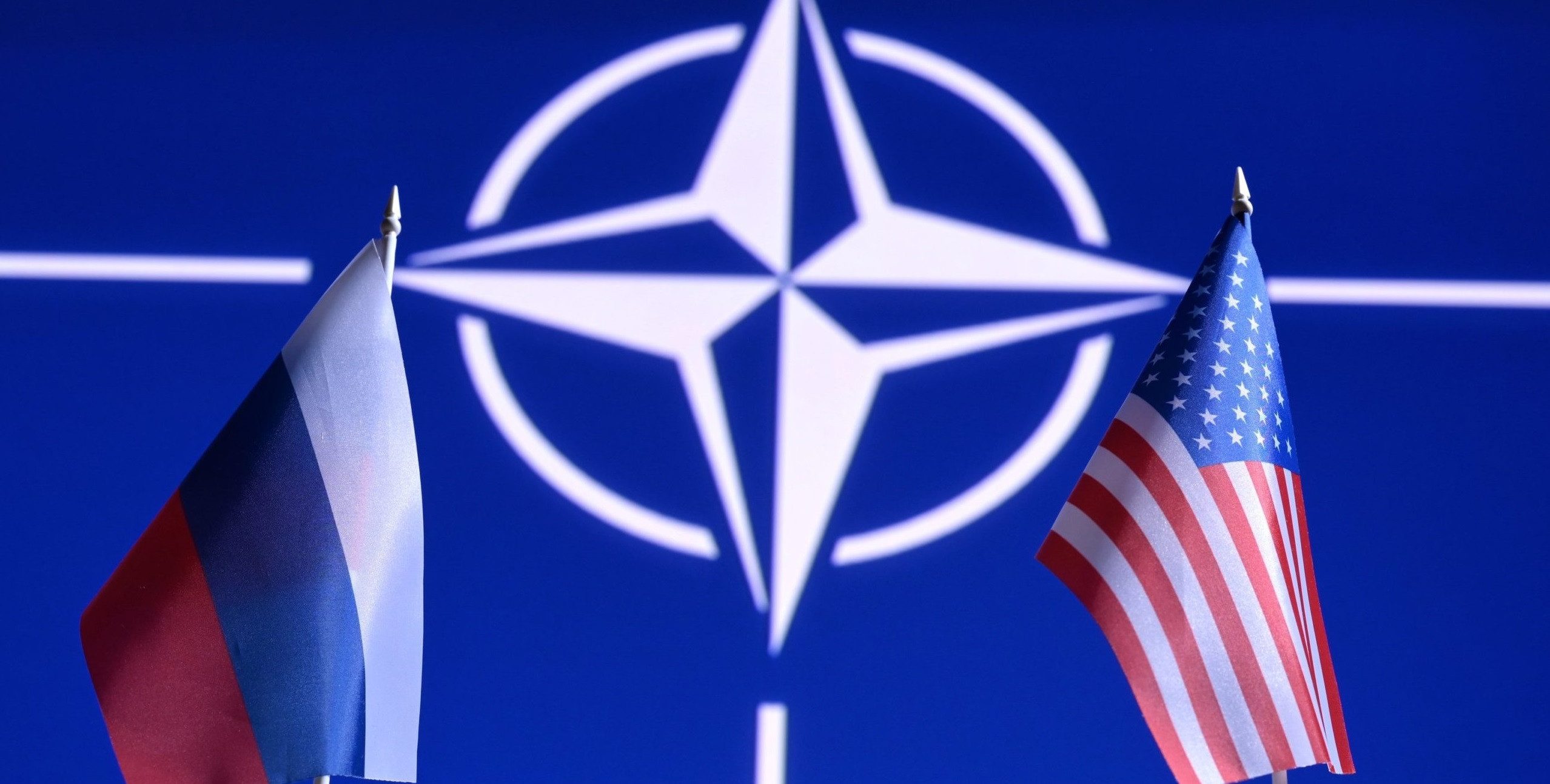Today, it’s come to be trendy to draw parallels between the current state of U.S.-Russian relations and the famous Cuban Missile Crisis of 1962. All the more so, because we are on the cusp of the 60th anniversary of the Cuban Crisis. Despite the obvious similarity between the two episodes of military and political stand-off between Moscow and Washington, there are several fundamental differences that clearly highlight the unprecedented danger of the current situation—even when compared to the dramatic events of the early 1960s.
First. The Cuban Missile Crisis was fleeting in nature: less than two weeks passed from the Cuba blockade to the dismantling of Soviet R-12 missiles on the island. The current crisis has been dragging on for 7.5 months and has long become part of the “new geopolitical reality.”
Second. The Cuban Missile Crisis had a nuclear dimension only. The current crisis is not limited to the nuclear sphere, and it is exacerbated by the fact that the U.S. has long been indirectly involved in a large-scale military conflict with Russia on the European continent as it provides comprehensive military, technical, intelligence, economic, and other aid and support to Ukraine.
Third. For both sides, the stakes in the current crisis are higher than they were 60 years ago.
Fourth. The structure of nuclear missile arsenals that Moscow and Washington currently have at their disposal is fundamentally different from anything they possessed in 1962. Accordingly, the line between nuclear and conventional warfare was very clear. Today, this line is a lot dimmer, and there are occasional discussions on both sides of the conflict about the “permissibility” of a limited nuclear conflict.
Fifth. Sixty years ago, the level of mutual respect and even trust between the leaders of Moscow and Washington was much higher than it is today.
Sixth. The lines of communication continued to work during the Cuban Missile Crisis.
Seventh. Both protagonists of the Cuban Missile Crisis, Nikita Khrushchev and John F. Kennedy, personally experienced all the horrors and hardships of World War II, having fought in Europe (Khrushchev) and the Pacific (Kennedy) from beginning to end. Vladimir Putin and Joseph Biden belong to the postwar generation.
For all the differences between the two situations, however, John F. Kennedy’s commencement address at American University, delivered on June 10, 1963, six months after the two superpowers had succeeded in retreating from the edge of the nuclear abyss, still sounds relevant today: “Above all, while defending our own vital interests, nuclear powers must avert those confrontations which bring an adversary to a choice of either a humiliating retreat or a nuclear war. To adopt that kind of course in the nuclear age would be evidence only of the bankruptcy of our policy – or of a collective death-wish for the world.”
Today, it’s come to be trendy to draw parallels between the current state of U.S.-Russian relations and the famous Cuban Missile Crisis of 1962. All the more so, because we are on the cusp of the 60th anniversary of the Cuban Crisis: the decision taken by the John F. Kennedy administration to impose a blockade on Cuba was made at the White House in the evening of October 20, having triggered the acute phase of the crisis.
Despite the obvious similarity between the two episodes of military and political stand-off between Moscow and Washington, there are several fundamental differences that clearly highlight the unprecedented danger of the current situation—even when compared to the dramatic events of the early 1960s. Let us list some of them.
First. The Cuban Missile Crisis was fleeting in nature: less than two weeks passed from the Cuba blockade to the dismantling of Soviet R-12 missiles on the island. The current crisis has been dragging on for 7.5 months and has long become part of the “new geopolitical reality.” Having said that, we still do not seem to have reached its lowest point.
Second. The Cuban Missile Crisis had a nuclear dimension only. In fact, the dispute between the two superpowers was over one specific issue: the withdrawal of R-12 missiles from Cuba by the Soviet Union in exchange for the U.S. abandoning its attempts to overthrow the Fidel Castro regime. An additional condition Moscow insisted on was the withdrawal of U.S. Jupiter missiles from Turkey. The current crisis is not limited to the nuclear sphere, and it is exacerbated by the fact that the U.S. has long been indirectly involved in a large-scale military conflict with Russia on the European continent as it provides comprehensive military, technical, intelligence, economic, and other aid and support to Ukraine.
Third. For both sides, the stakes in the current crisis are higher than they were 60 years ago. Cuba was of great symbolic and practical importance to both the United States and USSR, for sure, but the fate of Ukraine is still more important to the Kremlin and the White House alike. Moscow’s defeat would clearly not only spell doom for the current leadership in Russia, but it would also jeopardize the future of Russian statehood. A U.S. defeat could trigger the collapse of NATO, putting an end to the efforts to restore America’s teetering leadership in global affairs, as well as guarantee a change of power at the presidential election of 2024.
Fourth. The structure of nuclear missile arsenals that Moscow and Washington currently have at their disposal is fundamentally different from anything they possessed in 1962. For example, in the early 1960s, there were no high-precision systems, with small and ultra-small nuclear warheads being still in the bud. Accordingly, the line between nuclear and conventional warfare was very clear. Today, this line is a lot dimmer, and there are occasional discussions on both sides of the conflict about the “permissibility” of a limited nuclear conflict.
Fifth. Sixty years ago, the level of mutual respect and even trust between the leaders of Moscow and Washington was much higher than it is today. In the fateful days of October 1962, the two leaders assumed that the agreements reached would be implemented one way or another. Today, neither the Kremlin nor the White House is that confident. Moreover, both sides of the conflict seem to be fully convinced that the enemy is in a state of deep and irreversible decline, and any strategic agreements make little sense for that matter.
Sixth. The lines of communication continued to work during the Cuban Missile Crisis: Soviet Ambassador to Washington Anatoly Dobrynin repeatedly met with Robert Kennedy, keeping in personal touch with Secretary of State Dean Rusk. Anatoly Antonov, Russia’s current ambassador to Washington, can only dream of having access to top U.S. officials. As for the new U.S. ambassador to Russia Lynn Tracy, she has not yet arrived in Moscow, and it is not even known when she can finally show up at the Spaso House.
Seventh. Both protagonists of the Cuban Missile Crisis, Nikita Khrushchev and John F. Kennedy, personally experienced all the horrors and hardships of World War II, having fought in Europe (Khrushchev) and the Pacific (Kennedy) from beginning to end. Vladimir Putin and Joseph Biden belong to the postwar generation. Although President Biden was born in 1942, he hardly remembers anything about the war years, and it is unlikely that the 46th president of the United States can imagine the consequences of a new global conflict as vividly as the 35th head of the White House.
For all the differences between the two situations, however, John F. Kennedy’s commencement address at American University, delivered on June 10, 1963, six months after the two superpowers had succeeded in retreating from the edge of the nuclear abyss, still sounds relevant today: “Above all, while defending our own vital interests, nuclear powers must avert those confrontations which bring an adversary to a choice of either a humiliating retreat or a nuclear war. To adopt that kind of course in the nuclear age would be evidence only of the bankruptcy of our policy – or of a collective death-wish for the world.”
This is probably the best way to put it.
First published in Izvestiya.






